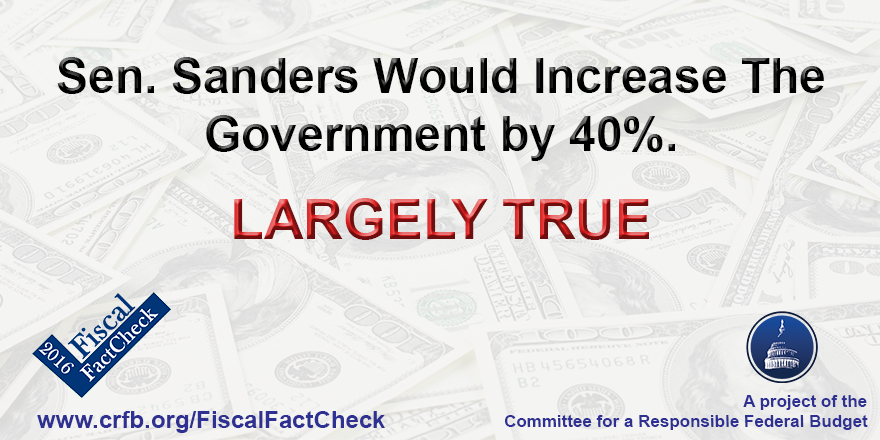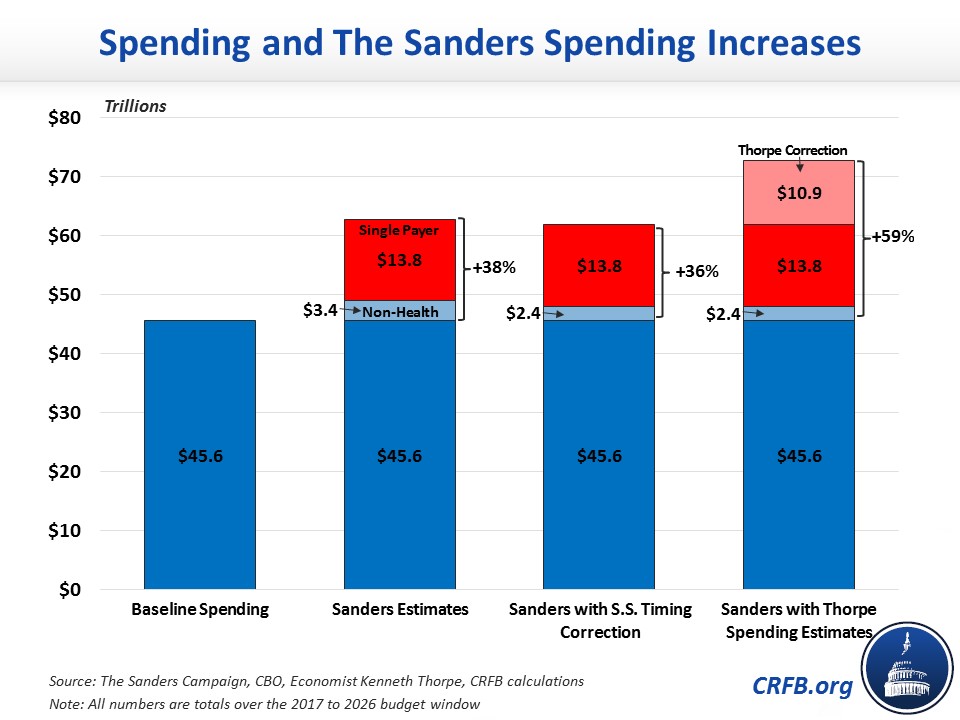Would Sen. Sanders Increase the Government by 40%?

There are multiple way to interpret what increasing the size of the government could mean: federal spending, taxes, the government work force. We generally assume that Sec. Clinton meant federal government spending which would be consistent with the moderator’s question.
The current projected level of non-interest spending through 2026 is $45.6 trillion. By his own estimation, Sanders’s proposed spending increases* total $17.2 trillion over the same time period (mostly from his single-payer plan), which would be a 38 percent increase over current projected spending. After accounting for Sanders’s phased-in Social Security benefit expansions, the spending increase falls slightly to 36 percent.
These calculations rely on the campaign’s estimate of the cost of Sanders’s health care plan. Using the calculations by health economist Kenneth Thorpe would add another $11 trillion, bringing the ten-year increase in spending to over $27 trillion, or about a 60 percent increase over current spending.
If you define the size of government by the amount of revenue collected and assume Sen. Sanders chose to offset all of his spending increases with tax increases, that would imply an increase in the size of government of at least 41 percent.

Sen. Sanders’s spending proposal is between 36 and 60 percent, which is around Sec. Clinton’s claim of a 40 percent spending increase.
Our Rating: Largely True
*We roughly breakout the increased spending as follows:
| Proposal | Cost |
|---|---|
| Infrastructure Spending Plan | $1 trillion |
| Universal College | $750 billion |
| Social Security Expansion | $1.2 trillion |
| Youth Employment | $5.5 billion |
| Paid Family Leave | $319 billion |
| Shore Up Pensions | $29 billion |
| Climate Change/Renewable Energy | $110 billion |
| Single Payer Health Care | $13.8 trillion |
| Total | $17.2 trillion |


